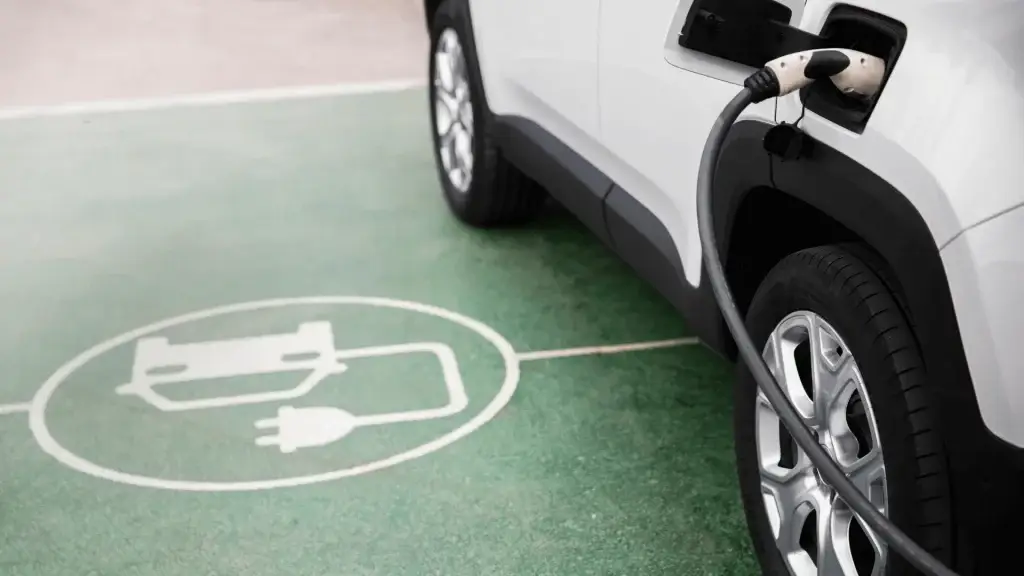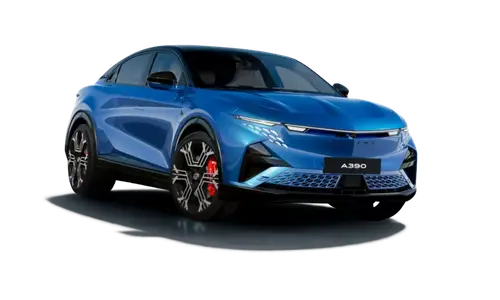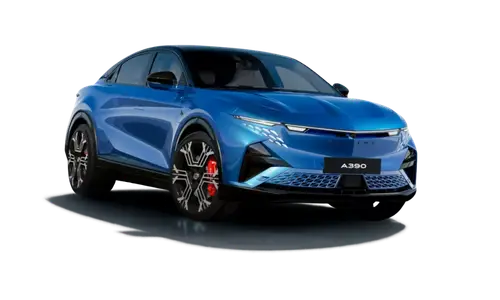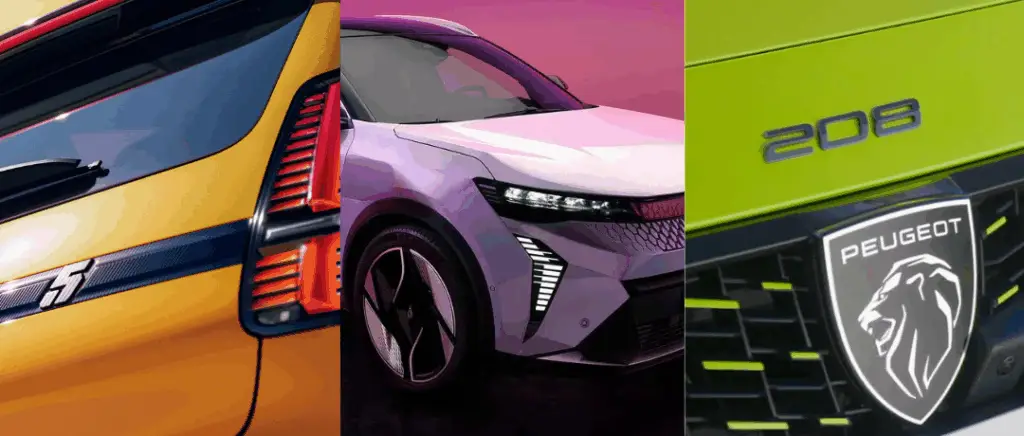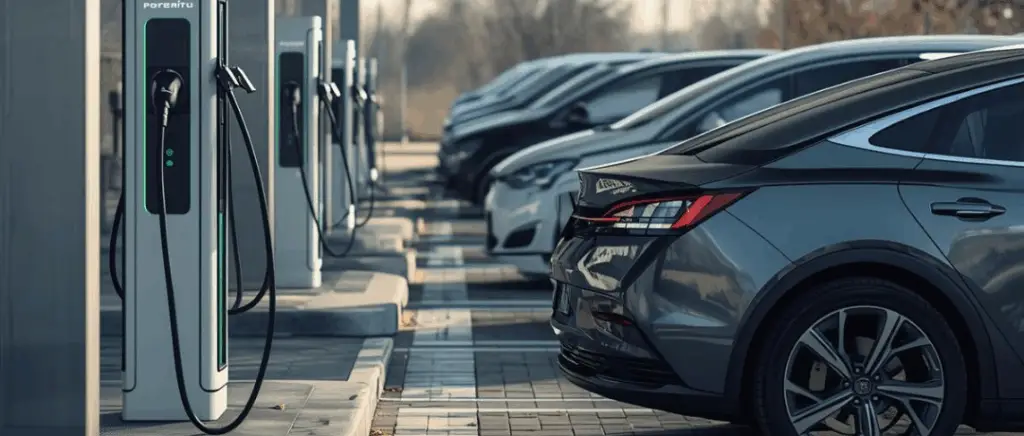Active participation in the ecological transition
According to the 2020 annual transport reviewIn France, the transport sector is responsible for 29% of greenhouse gas emissions. Despite the health crisis in 2020 and traffic restrictions, the transport sector remains the main contributor to greenhouse gas emissions in France. This first, and by no means least, observation underlines the importance of the ecological transition.
A company specialising in delivery, for example, has a role to play in reducing CO2 emissions. Specifically, it will have every interest in the electrification of its vehicle fleet for example, this would significantly reduce the sector's contribution to greenhouse gas emissions. In this way, you will be offering your employees responsible means of transport, and at the same time providing an equally responsible service to your customers. As a result, you will also be in line with the government's expectations, which have been in place since 2020. The law stipulates that professionals must have 10% of low CO2 emission vehicles in their fleet. fleet of vehiclesregardless of their sector of activity.
What's more, it's important to bear in mind that an electric vehicle emits less CO2 than an electric car. thermal vehicle. According to a study conducted by ADEME in 2017Taking into account its manufacture, use and end-of-life, an electric vehicle produces 2 to 3 fewer greenhouse gases. That's why, by using an electric vehicle rather than a combustion vehicle, you are making a conscious and voluntary contribution to the energy transition. We can therefore conclude that electric vehicles have less impact on the environment, but that's not all...
All-round practicality
As well as helping us to make the ecological transition, electric vehicles offer us other incomparable advantages. Between being comfortable to drive and the savings we can make thanks to the electric carsAnd there's no end of surprises in store!
Driving comfort
What makes electric cars is their noise, or rather their lack of noise. Without being completely silent, the electric cars are renowned for their quietness when driving. For example, the pedestrian warning system for electric vehicles emits a minimum sound level of 56 decibels. This sound level, comparable to that of a washing machine, will not prevent you from relaxing. In fact, after a study by Dr. Duncan Williams of the University of YorkIt has been shown that driving an electric vehicle helps to reduce stress. The study, carried out on London taxi drivers, showed that they found it easier to concentrate and felt less stressed when driving an electric car. electric car.
This comfort is made possible in particular by the fact that there is no clutch pedal or manual gearbox, which means you can avoid the jolts associated with gear changes, or even stalling! What's more, the electric motor gives you lively acceleration. It is capable of delivering all its power instantly. Taking the example of Teslathe 0 to 100 km/h time is 3.3 seconds for the Model 3. Let's take the case of Kia with its Niro EV model at 7.8 seconds, a respectable performance!
As well as having a smoother ride, at the wheel of an electric car you'll benefit from cutting-edge technology. Despite the fears associated withautonomy from electric carsToday, a great deal of progress has been made. On average, for a battery 50 kWh, fully charged, the electric car can travel 300 km. This way, all your day-to-day journeys will be possible. For longer journeys, with a properly planned itinerary, thanks in particular to applications such as Chargemap to see where the available charging points are, there's obviously no need to worry about recharging your vehicle. You'll also be able to take advantage of a high-capacity battery. By taking a few simple steps, you can extend the range of your electric car (eco-driving, charging the vehicle, etc.).
Don't hesitate to consult our article on how to save the battery in an electric car!
Finally, electric vehicles have powerful assistance systems. From autonomous driving Autopilot or by Hyundai Smartsense, which makes it possible to anticipate dangers or blind spots, etc. electric cars offer a host of driving aids.
The economy of use
The main advantage of electric vehicles is the cost of recharging. An electric car doesn't need to queue up at the petrol station to be able to drive off again, you just need to plug it into a charging point and wait while it charges.
In 2023, recharging your electric vehicle will cost considerably less than filling up your internal combustion vehicle. We are facing a soaring prices, due to external factors such as the war in Ukraine. That's why having the option of recharging your vehicle with a charging point is a major advantage. What's more, you now have the option of recharging your electric vehicle at home, at work, while you're out shopping, and so on. Say goodbye to the stress of having to find a charging station before you run out of fuel! You can also benefit from installation grants for charging stationsWe'll come back to this point later.
What's more, the cost of maintenance for a electric car is lower than for a combustion engine vehicle. Take the case of brakes and brake pads, for example: they last longer than a combustion engine car. Why is this? The braking system of an electric car recovers kinetic energy from the movement of the car, in order to create electricity and gain greater autonomy. This is known as regenerative braking.
Financial opportunities not to be missed!
In this section, you'll see all the grants you can claim for the purchase of an electric vehicle. For the sake of clarity, the grants for electric vehicles and charging points will be separated into those for private individuals and those for businesses. This will make it easier for you to refer to the section that interests you!
Support for electric cars
n the case of an electric car, the total purchase price ismust not exceed €47,000 inclusive of taxincluding options, after potential commercial discounts and before deduction of public subsidies.
Final assemblymust be made in a European Union countrywhere less than 110g of CO2 are emitted to produce 1 kWh of electricity.
4,000 instead of €5,000 for the wealthiest individuals
The French government has confirmed a reduction in the amount of the ecological bonus for a proportion of the French population, in particular households in the five highest income deciles. This reduction means a reduction in the aid allocated to the purchase of new electric cars, from €5,000 to €4,000 for these taxpayers.
For less well-off households, however, the amount of assistance remains unchanged, with the bonus maintained at €7,000. It should be noted that the limit of reference tax income per unit, used as a criterion of distinction, has been changed from €14,089 to €15,400.
For companies and local authorities
The decree completely abolishes the ecological bonus for the acquisition of new private cars by legal entities, which represents an unpleasant surprise for companies. In addition, all bonuses for electric vans have been reduced by €1,000, for both private individuals and legal entities.
These new rules will come into force the day after the decree is published, i.e. on 14 February. However, for orders placed before this date, the more favourable rules in force until 13 February will be applied if the vehicle is delivered before 15 May 2024.
Comparative table for the 2023 vs 2024 ecological bonus
| Ceiling 2023 | Ceiling 2024 | |
|---|---|---|
| New electric or hydrogen car (1) - RFR> €15,400(5) | 5 000 € | 4 000 € |
| New electric or hydrogen car (1) - RFR≤ €15,400(5) | 7 000 € | 7 000 € |
| New electric or hydrogen car (1) - legal entity | 3 000 € | - |
| Used electric or hydrogen cars | 1 000 € | - |
| New electric or hydrogen-powered light commercial vehicle (2) -RFR > €15,400(5) | 6 000 € | 5 000 € |
| New electric or hydrogen-powered light commercial vehicle (2) -RFR ≤ €15,400(5) | 8 000 € | 8 000 € |
| New electric or hydrogen-powered light commercial vehicle (2) - legal entity | 4 000 € | 3 000 € |
| Used electric or hydrogen-powered light commercial vehicles | 1 000 € | - |
| New 2 or 3-wheel vehicle or electric quadricycle (3) ≤ 3 kW | 100€ | 100€ |
| New 2- or 3-wheel vehicle or electric quadricycle (4) ≥ 3 kW | 900€ | 900€ |
Support for recharging stations
Electric vehicles mean charging point. Don't panic, Beev is here to help!
For the individuals :
- tax credit This loan enables you to finance part of the installation of your charging point. This loan is available for expenditure incurred between 1 January 2021 and 31 December 2023. It is capped at 75% of the costs incurred, with a maximum amount of 300 euros per charging system.
- Regional grants: depending on where you live, you may be eligible for a grant of up to €2,5000 in Normandy, for example, for the installation of a solar home. charging point. Please note that these subsidies can also be combined with other available national grants.
For the professionals :
- the ADVENIR programme This financing solution supports professionals in the installation of charging stations. This aid, with a budget of €320 million, has been extended until 2025, providing you with a bonus depending on your situation. To find out more about the changes expected in 2023, please consult our article on the Advenir premium.
The scale applicable from 1 August 2022 is attached:
| Type de bénéficiaire | Taux d'aide total | Plafond HT par point de recharge |
|---|---|---|
|
Private car park for fleets and employees
|
20 %
|
600 €
|
|
Private car park for HGV fleets
|
50 %
|
From €2,700 to €960,000
|
|
Private car park open to the public
|
30 %
|
From €1,000 to €9,000
|
|
Private car park open to the public (intermediate target)
|
30 %
|
From €1,000 to €1,300
|
|
Modernisation of public charging points
|
50 %
|
From €1,000 to €4,500
|
Good to know: for private car parks for heavy goods vehicle fleets, the Advenir aid ceiling indicated above applies to the deployment ofrecharging infrastructure greater than 500 kVA. For infrastructure deployments less than 500 kVAthe amount of the bonus varies between 2,200 and €15,000depending on the charging power you choose. For more information, contact our Beev experts or visit the Advenir website.
For automotive service professionals
- The ADVENIR programme: in 2022, the Advenir bonus was introduced for automotive service professionals. Here are the rates:
| Type de bénéficiaire | Taux d'aide total | Plafond HT par point de recharge |
|---|---|---|
|
Fleets and employees
|
25 %
|
750 €
|
|
Private car park open to the public
|
50 %
|
From €1,700 to €15,000
|
Other benefits
Rental, a service offered by Beev. To help you make the ecological transition, Beev has put in place rental solutions for your electric cars and your charging stations:
- electric cars: you can choose between medium-term rental for professionals (LMD), the long-term rental (LLD) or lease with purchase option (LOA). These leasing offers offer a major financial advantage, allowing you to enjoy electric vehicles while adapting to your budget, with the option of buying the vehicle with the LOA.
- charging stations: the hire of recharging points is also available for professionals.
Finally, you also benefit from other advantages that are difficult to evaluate in monetary terms. For example, the benefits in kind enjoyed by your employees, travelling by electric car to visit customers is a decisive added value. What's more, by driving an electric vehicle, you are not subject to any traffic restrictions, and you can even take advantage of preferential parking rates.
Key figures
Here are the key figures for the switch to electric vehicles:
- 80% of lithium battery components have a recycling solution,
- Driving an electric car costs €2 to €3/100 km, whereas driving a combustion-powered vehicle costs €6 to €8/100 km,
- Switching to an electric car means you can benefit from government grants totalling up to €1,100,
- More than 29,000 public charging points are available,
- In 90% of cases, charging is carried out either at home or at work.
Source : ministry of ecological transition
What about you? Are you ready to go electric? Let us know what you think!
